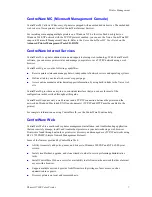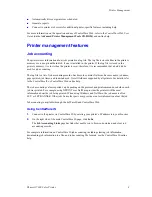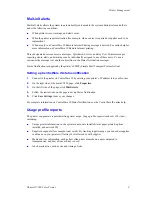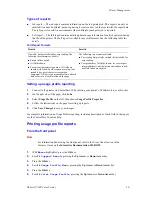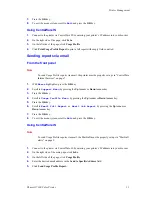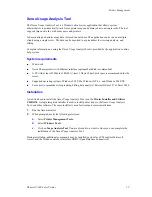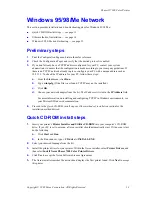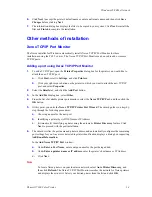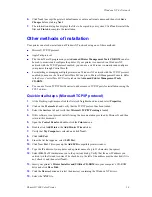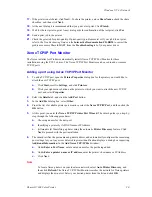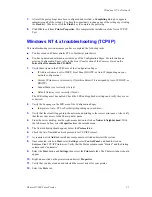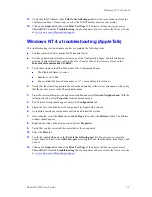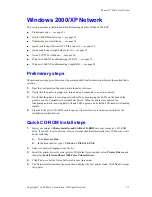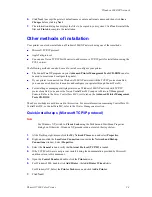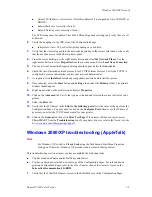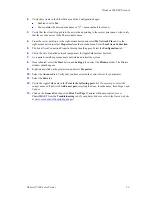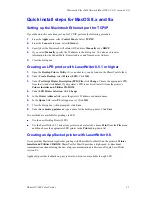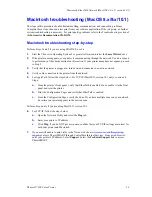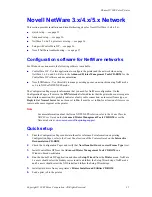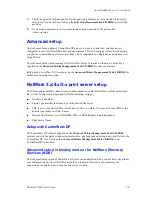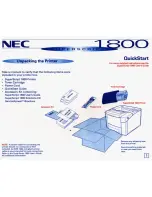
Windows NT 4.x Network
Phaser® 7300 Color Printer
21
7.
After all the port settings have been configured and verified, a
Completing
dialog box appears
summarizing all of the settings. You have the opportunity to change any of the settings by clicking
the
Back
key. Otherwise, click the
Finish
key to complete the port setup.
8.
Click
OK
to exit from
Printer Properties
. This completes the installation of the Xerox TCP/IP
Port.
Windows NT 4.x troubleshooting (TCP/IP)
This troubleshooting section assumes you have completed the following tasks:
You have loaded a Phaser printer PCL or PostScript print driver.
You have printed and retained a current copy of the Configuration Pages. For information on
printing Configuration Pages, refer to the
Front Panel
section of the
Features Guide
on the
Interactive Documentation CD-ROM
.
1.
Verify these items in the TCP/IP area of the Configuration Pages:
IP Address Source is set to DHCP, Front Panel, BOOTP, or Auto IP (depending on your
network configuration).
Current IP Address is set correctly. (Note this address if it is assigned by Auto IP, DHCP, or
BOOTP.)
Subnet Mask is set correctly (if used).
Default Gateway is set correctly (if used).
The LPR setting must be enabled. Check the LPR and AppSocket settings and verify they are set
as desired.
2.
Verify the Language in the LPR area of the Configuration Pages:
Interpreters: Auto, PCL or PostScript (depending on your driver).
3.
Verify that the client is logged into the network and printing to the correct print queue. Also verify
that the user has access to the Phaser printer queue.
4.
From the server desktop, use the right-mouse button to click on
Network Neighborhood
. With
the left-mouse button, select
Properties
from the cascade menu.
5.
The Network dialog should appear. Select the
Protocols
tab.
6.
Check the list of installed network protocols for TCP/IP Protocol.
7.
As required, click
Add
and install any components not listed and restart the system.
8.
Once rebooted, click on
Start
, select
Settings
, select
Control Panel
, and double-click on
Services
. Find TCP/IP PrintServer. Verify that the Status column reads “Started” and the Startup
column reads “automatic”.
9.
Select the
Start
button and
Settings
, then select the
Printers
folder. The Printers window should
appear.
10.
Right-mouse-click on the printer icon and select
Properties
.
11.
Verify that you have loaded and selected the correct driver for your printer.
12.
Select the
Ports
tab.

